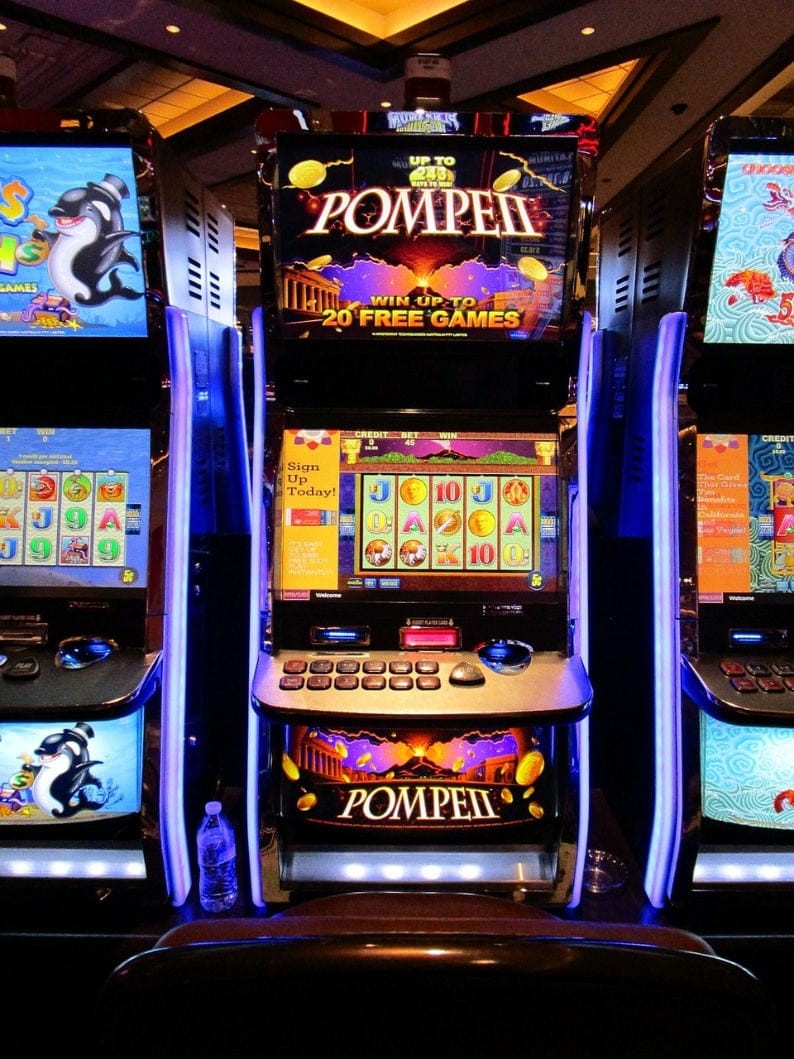
Sweden's Casino Operations vs Nevada Models: Licensing, Training, and Player Protection
Sweden and Nevada represent two distinct philosophies in global gaming regulation. Both aim to ensure fairness, protect consumers, and maintain industry integrity, but they do so through very different paths. Sweden's model emphasizes centralized digital oversight and responsible gaming, while Nevada's framework draws on decades of experience managing large resort-based casinos. Together, they offer valuable insights into how culture, technology, and policy intersect to define the gambling experience for operators and players alike.
Regulatory Landscape at a Glance
Sweden: Spelinspektionen and the Post-2019 Re-Regulation
Sweden's gambling landscape transformed in 2019 when the market shifted from a monopoly system to a license-based framework. The change brought private operators under the supervision of Spelinspektionen, the national gambling authority. This new structure set out to increase transparency, reduce unlicensed competition, and strengthen consumer protection. Licensing covers online and retail operations alike, with strict requirements for responsible gambling tools, data reporting, and financial stability. Compliance standards are among the most rigorous in Europe, supported by firm penalties for breaches. Operators such as Nitrowin have adapted by embedding compliance within every layer of product design, ensuring that safer gambling measures and transparency features are not optional but fundamental to day-to-day operations.
Nevada: The NGCB and a Legacy of Commercial Gaming
Nevada's model is the benchmark for traditional land-based gambling regulation. The Nevada Gaming Control Board (NGCB) and the Nevada Gaming Commission (NGC) form a two-tier system that oversees licensing, enforcement, and adjudication. Over the decades, this structure has refined its processes through experience and precedent, creating one of the most stable regulatory environments in the world. Operators undergo extensive investigations before approval, including financial audits and character assessments. The state's focus on integrity, transparency, and economic growth supports a vast entertainment ecosystem built around full-service resort operations.
Policy and Cultural Objectives
Sweden's system emphasizes public health, data-driven supervision, and minimizing harm, while Nevada focuses on tourism, job creation, and tax revenue alongside strict oversight. Both aim for balance between market growth and responsible conduct, but Sweden leans heavily on digital analytics and social responsibility, whereas Nevada relies on institutional discipline and physical monitoring. This divergence influences everything from the pace of innovation to how compliance teams are structured.
Licensing Pathways and Compliance Requirements
License Types, Fees, and Application Processes
Sweden issues licenses for online gaming, betting, and land-based operations, with separate authorizations for software suppliers. Application reviews take several months, including technical audits and assessments of responsible gaming strategies. In Nevada, unrestricted licenses apply to large casinos, while restricted ones cover smaller venues. Applications involve exhaustive due diligence and suitability investigations that may span months depending on the complexity of ownership structures.
Suitability and Background Verification
Both jurisdictions demand comprehensive checks on key individuals, shareholders, and suppliers. In Sweden, emphasis lies on financial integrity, anti-money laundering controls, and technical resilience. In Nevada, regulators assess character, litigation history, and business conduct. A single omission or undisclosed legal issue can derail an application in either system. This shared focus on transparency ensures public confidence in the industry's operational integrity.
Auditing and Enforcement Practices
Swedish regulators conduct regular audits and publish enforcement decisions to maintain transparency. Reports, technical certifications, and real-time safer gambling data are mandatory. Nevada regulators rely on in-person inspections, on-site investigations, and hearings before the commission. Both jurisdictions enforce high penalties for AML failures, misleading marketing, or insufficient risk controls, reinforcing a culture of accountability.
Workforce Training and Professional Standards
Dealer and Operational Staff Training
In Sweden, operators must document staff training programs covering game fairness, customer interaction, and safer gambling interventions. Every employee handling player interactions must understand incident reporting and compliance processes. In Nevada, dealers, cage staff, and surveillance personnel are licensed or registered, with strict adherence to standardized procedures. Training ensures consistency in payouts, dispute resolution, and fraud prevention across resorts and gaming floors.
Compliance and AML Education
Compliance staff in both regions receive ongoing training in anti-money laundering, suspicious transaction reporting, and player protection. Sweden's regulator emphasizes behavioral risk detection and proactive intervention. Nevada mandates compliance with the US Bank Secrecy Act and local AML laws, requiring detailed recordkeeping and staff certification. Both focus on escalation procedures, documentation accuracy, and coordination between frontline teams and compliance officers.
Renewals and Certification Cycles
Licenses and staff registrations must be renewed periodically. Sweden ties renewals to continuous adherence and updated system certifications, while Nevada requires re-evaluation of suitability whenever ownership or leadership changes. Cross-jurisdiction reciprocity is rare, meaning operators must maintain jurisdiction-specific compliance documentation and retraining for staff working across both markets.
Player Protection and Responsible Gambling Mechanisms
Identity Verification and KYC
Sweden's digital-first system requires players to verify their identity before depositing or betting, typically using national ID credentials or BankID. This ensures every transaction is traceable and linked to an identified individual. Nevada relies on physical ID checks for on-site visitors and app-based verification for remote play. Both frameworks require audit-ready KYC records, fraud monitoring, and source-of-funds verification for large transactions.
Self-Exclusion and Play Limits
Sweden's Spelpaus program is a national self-exclusion database that blocks users across all licensed platforms once activated. Players must also set deposit and session limits, and operators are obligated to intervene when behavioral risk indicators appear. In Nevada, exclusion lists and property-level bans are managed at the venue or statewide level, with digital apps offering voluntary limit settings. Both systems aim to simplify the self-exclusion process while ensuring it is effective across multiple access points.
Marketing and Data Controls
Swedish advertising rules demand moderation and prohibit messages that target vulnerable individuals or suggest gambling as a financial solution. Bonuses are heavily restricted and must be clearly presented without misleading language. Nevada allows broader promotional freedom but penalizes deceptive advertising and underage marketing. Both frameworks enforce strict data privacy obligations under GDPR in Sweden and equivalent US privacy regulations, mandating secure storage and limited data use.
Operational Models and Technological Evolution
Sweden's Online-Focused Market
Sweden's regulated market is dominated by online play, where channelization of the rate of activity conducted on licensed sites is a central measure of success. To protect this ecosystem, authorities employ payment blocking and domain restrictions against unlicensed operators. Real-time data reporting enables regulators to monitor player behavior and intervene early. Transparency in return-to-player values and responsible design features has become an industry benchmark.
Nevada's Resort-Based Ecosystem
Nevada's casinos operate as integrated entertainment destinations, combining gaming, hospitality, and events under one roof. Surveillance systems, transaction monitoring, and physical oversight are core to maintaining trust. Mobile wagering is available but typically linked to on-site verification, keeping regulatory control tied to physical venues. This model delivers economic diversity through tourism, conventions, and hospitality, strengthening community impact. To see how this integration plays out across different casino platforms, the Vegas Aces Hubs section offers a centralized view of games, strategy resources, and live dealer content.
Technology and Data Analytics
Both Sweden and Nevada are embracing cashless transactions, behavioral analytics, and real-time monitoring. Cashless wallets improve traceability and reduce fraud, while analytics platforms identify problem gambling patterns or compliance risks. The challenge in both markets lies in maintaining user trust by safeguarding personal data while using it to support responsible play.
Economic Outcomes and Policy Takeaways
Taxation and Revenue Streams
Sweden's online-driven market produces consistent tax income but must combat leakage to unlicensed sites. Nevada's diversified model generates broader revenue through hospitality, tourism, and retail, offering stability during gaming downturns. Both jurisdictions allocate gambling taxes toward social and public programs, demonstrating the sector's role in broader fiscal policy.
Employment and Local Impact
Nevada's casinos sustain thousands of jobs across hospitality, entertainment, and operations. Sweden's online model, while leaner, fuels employment in tech, compliance, and customer support. Countries seeking to modernize their gambling frameworks can draw lessons from both: physical venues strengthen communities, while digital oversight ensures scalability and data-driven regulation.
Measuring Success Through Player Outcomes
Both models rely on data to measure harm reduction and player well-being. Sweden leverages centralized data collection and algorithmic analysis, while Nevada focuses on direct observation and incident reporting. Transparent public reporting and independent research are crucial for accountability and continual improvement.
Conclusion
Sweden and Nevada illustrate two successful but contrasting approaches to gambling regulation. Sweden's data-centric, online-first structure offers precision and scalability, while Nevada's long-standing resort model delivers stability and community benefit. Together, they highlight that effective regulation depends on context, culture, and enforcement strength. For the global gaming industry, the next frontier will be blending Sweden's digital discipline with Nevada's operational depth creating systems that safeguard players, empower staff, and sustain economic growth in equal measure.
Related Article Archives
Related Articles
The Top 5 Slot Games Players Keep Coming Back to in 2026
Posted Feb 20th, 2026
No-Wagering Casino Bonuses in Canada: A Clearer Look at Simpler Bonus Terms
Posted Feb 25th, 2026
Understanding the Rise of Online Casino Bonuses in Michigan
Posted Feb 26th, 2026
New Strategies Changing How Poker Is Played
Posted Feb 27th, 2026
How Canadian Fans Are Pairing Game Night With Digital Casino Entertainment
Posted Feb 25th, 2026
Disclosure: This article contains sponsored content.

Table of Contents
- Regulatory Landscape at a Glance
- Licensing Pathways and Compliance Requirements
- Workforce Training and Professional Standards
- Player Protection and Responsible Gambling Mechanisms
- Operational Models and Technological Evolution
- Economic Outcomes and Policy Takeaways
- Conclusion






